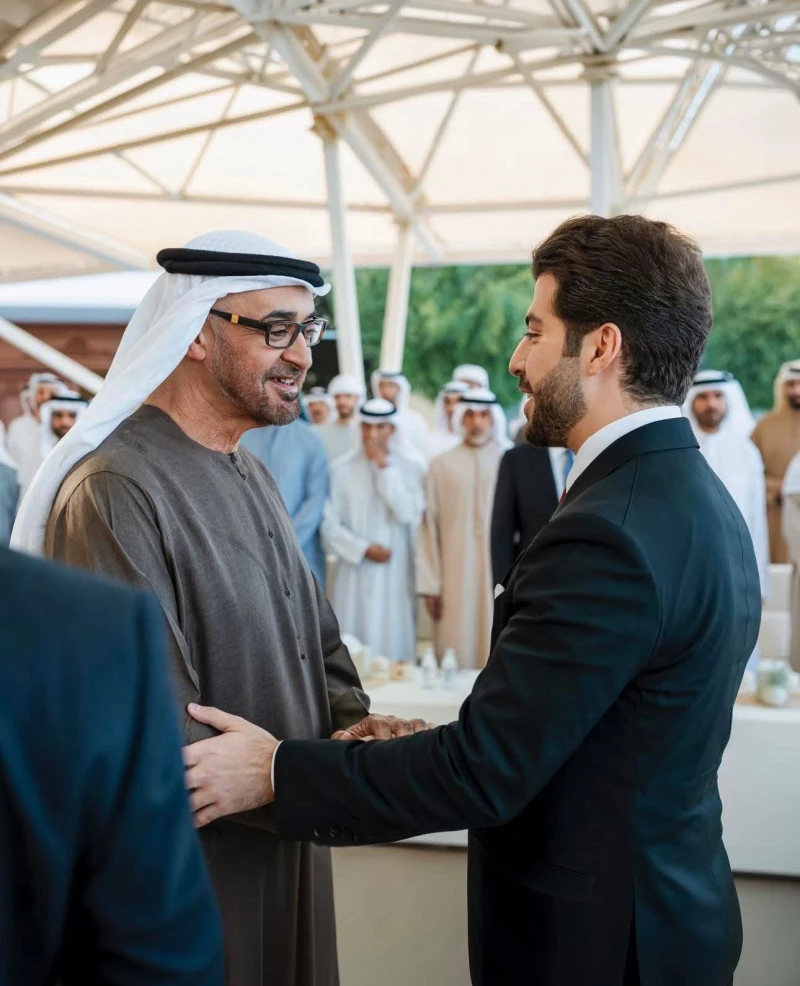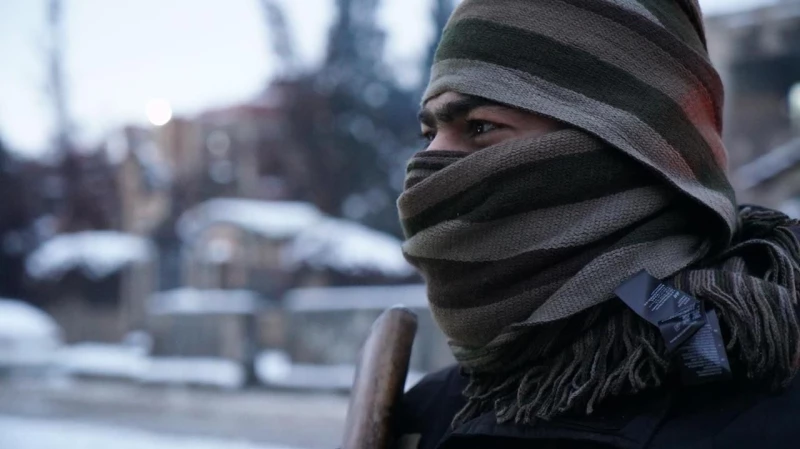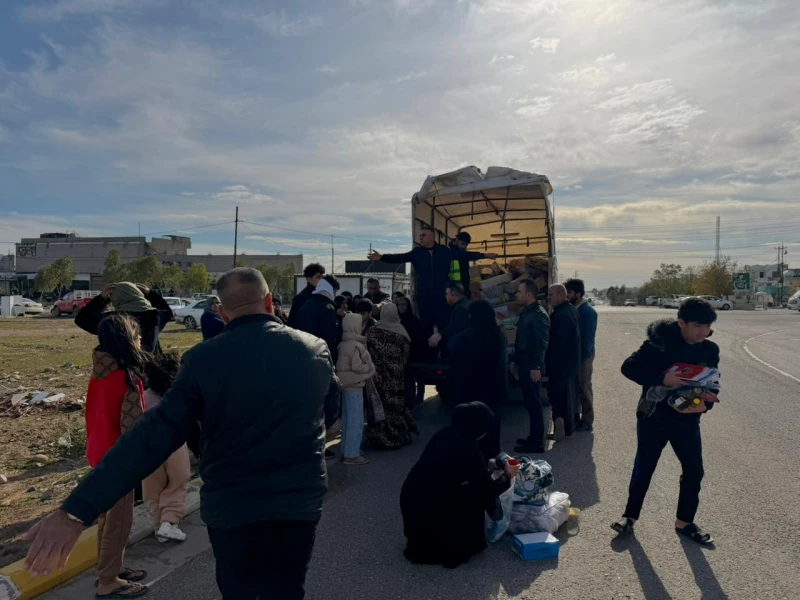The Yazidi internally displaced persons (IDPs) community is debating the Iraqi government's proposals to shutter IDP camps in the Kurdistan Region and relocate families and individuals to their pre-2014 homelands. Many Yazidis who were displaced from Sinjar adamantly oppose going back without assurances of restored security, essential services, and adequate living standards.
“I live here in peace”
Yazidi farmer Khairo Darwish works hard in his field in the northern Duhok province, meticulously caring for his crops, aiming for a bountiful harvest this year to offer at the local market.
Khairo and his family were displaced from the Sinjar district when ISIS seized control of their village, Seba Sheikh Khader, in August 2014. They wound up in the Bersive IDP camp in Duhok province.
37 year-old Khairo depends on farming to provide for his family of five, much like hundreds of other Yazidi families living in the Sinjar IDP camps.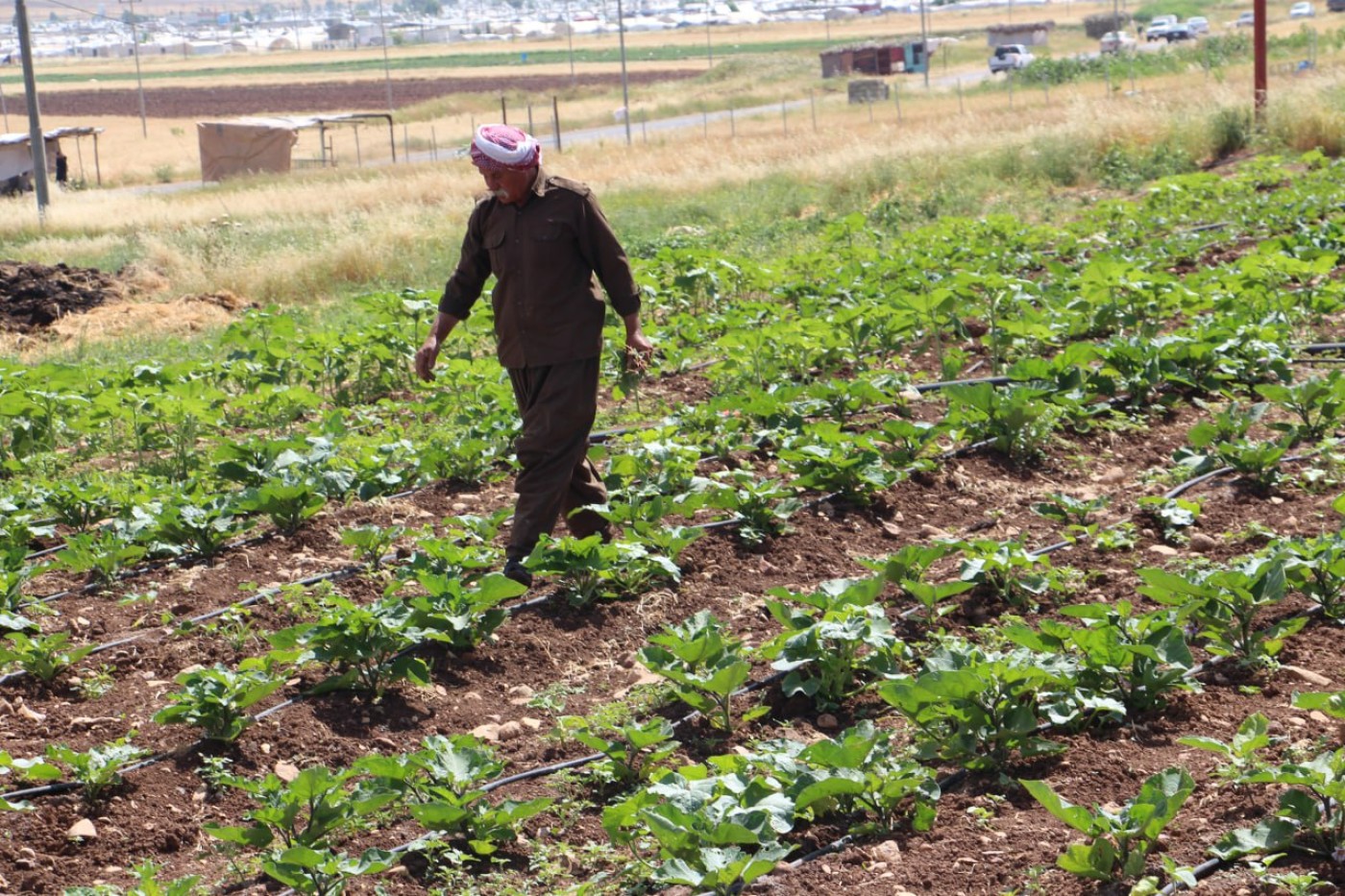
Drawing upon the farming legacy passed down from his ancestors in Sinjar, Khairo displays a fervent dedication to agriculture. Leasing a sizable plot in the Bersive region of northern Duhok, he has meticulously turned once barren terrain into a vibrant green expanse. Here, he tends to an array of summer crops including tomatoes, cucumbers, peppers, eggplants, and watermelons. From dawn till dusk, Khairo toils in his fields with unwavering energy and enthusiasm, never succumbing to weariness or monotony.
“The Iraqi government has failed to provide any assurances for our dignified repatriation”
Despite recent decisions by the Iraqi government to close IDP camps in the Kurdistan Region, Khairo remains steadfastly focused on his agricultural pursuits, showing little inclination to return to his hometown of Sinjar.
Speaking to The New Region, he expressed his lack of optimism about returning, citing the ongoing destruction of their homes and uncertain living conditions. "I have no hope of returning to Sinjar. Our homes are destroyed, and we don't know where to live or what our living conditions will be like. The situation there is still dark and unsettling. The Iraqi government has not offered anything tangible to ensure our dignified return, so I will not go back to Sinjar in these unstable conditions."
"I live here in peace and continue my profession despite the challenges. The situation is significantly better compared to those residing in Sinjar at present. Life there is much tougher; over 80% of our village's homes are in ruins, and essential services are nearly non-existent. The government has yet to provide compensation for the rehabilitation and reconstruction of our homes to make them livable again."
In 2024, earlier this year, the Iraqi government took the decision to shut down the 23 IDP camps in the Kurdistan Region. The majority, situated in Duhok province, are slated for closure by the end of July.
Concerns mount over resurgence of terrorism cells
Sinjar's acting Mayor, Naif Saydo, told The New Region that the conditions in which to safely return displaced individuals to their homes with dignity, currently fall short. He emphasized that the displaced have not received compensation, their homes remain unreconstructed, and it's not feasible to relocate families from one tent to another. Moreover, essential services in Sinjar have not sufficiently improved to meet the needs of citizens affected by ISIS occupation.
He further noted that the security situation remains cautiously calm, with sporadic reports of terrorist cells in certain areas near Sinjar.
According to United Nations statistics, ISIS destroyed approximately 80% of public infrastructure and 70% of civilian homes in Sinjar city and surrounding areas. Nearly 85% of Sinjar's population relied on agriculture before 2014, and ISIS fighters depleted the region's natural resources, sabotaged irrigation channels and wells, stole or destroyed agricultural equipment, and confiscated agricultural land.
Lack of job opportunities
Farmer Jalal Shingali, 25, shares the sentiments of his friend Khairo Darwish regarding the repatriation of displaced Yazidis to Sinjar. Speaking to The New Region, he expressed the challenges of returning to Sinjar amid the current conditions, citing the scarcity of livelihood opportunities, inadequate services, and an uncertain future. Shingali emphasized the lack of significant progress from the Iraqi government, urging authorities to prioritize providing essential life necessities before Yazidis consider returning to their hometowns.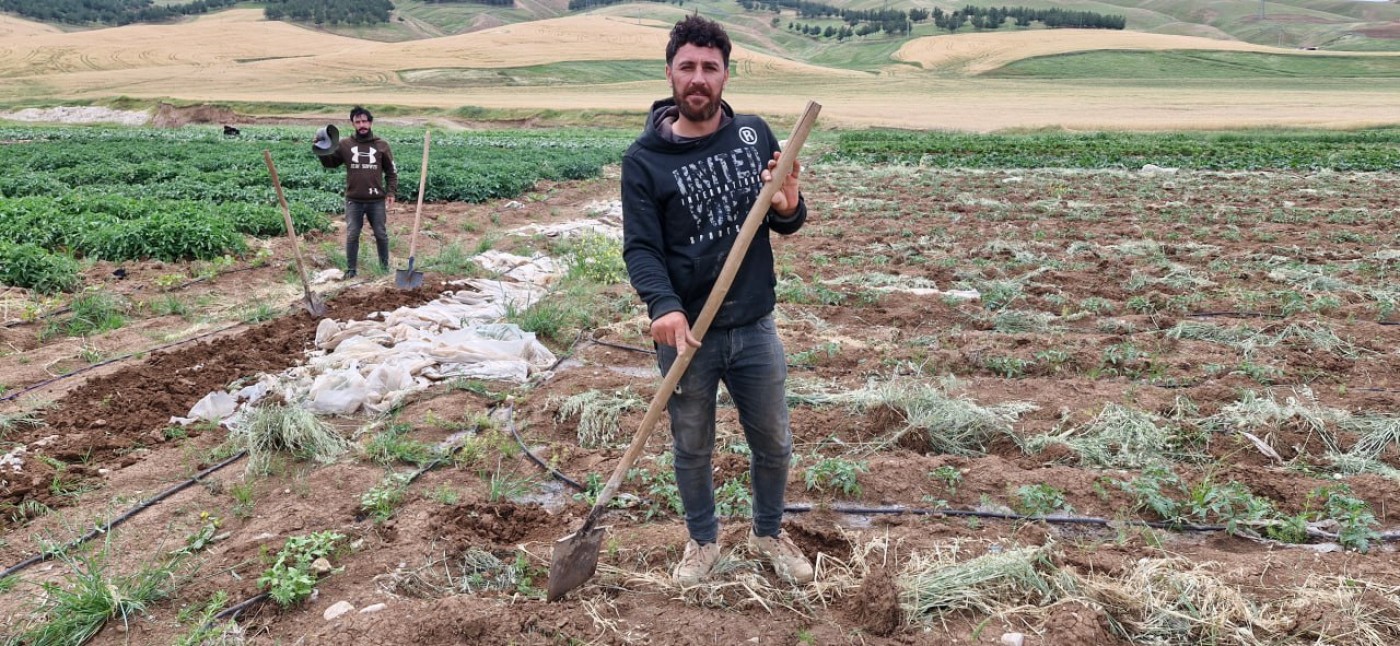
Sinjar Agreement implementation key to facilitating Yazidi IDPs' return home
In the Kurdistan Region, the Sinjar Agreement is viewed as a crucial step toward facilitating the return of displaced Yazidis to their ancestral areas. Kurdistan Region Prime Minister Masrour Barzani stressed the importance of fully implementing the Sinjar Agreement during his meeting with US Under Secretary of State for Civilian Security, Democracy, and Human Rights, Uzra Zeya, on May 9, 2024. This entails dismantling militias and illegal armed groups, initiating the reconstruction of Sinjar, and facilitating the voluntary return of IDPs to their homes.
In October 2020, under the leadership of Mustafa Al-Kadhimi, the Iraqi government inked a deal with the Kurdistan Regional Government aimed at normalizing the situation in Sinjar. The agreement outlined that the federal government would oversee security operations in Sinjar in collaboration with the regional government, while Nineveh's local administration would manage public services. It further mandated the removal of Kurdistan Workers' Party (PKK) elements and other armed factions from the district, transferring control to the federal army and police. However, four years since its ratification, the Iraqi government has yet to enact this agreement.
Armed militias’ presence raises security concerns
Bêr Diyan, the Director of the Migration and Displacement Department in Duhok province, told The New Region that only 30% of displaced individuals have returned to their hometowns in the Sinjar surrounds, while the remaining 70% continue to reside in the Kurdistan Region, a total of 320,000 people. He said that the persistence of illegal armed militias in Sinjar, coupled with the dearth of security, essential services, employment prospects, and compensation, serves as a deterrent for displaced persons to reestablish their lives in their native areas, prompting them to stay in the camps instead.
Full return of IDPs hinges on justice
Khodr Domli, a researcher specializing in peace and conflict resolution, underscores that in line with international standards, the return of internally displaced persons (IDPs) to their native areas must be voluntary and carried out in a manner that upholds their dignity and security. Meeting these standards, he says, entails thorough preparations in their original locales, encompassing both security measures and societal considerations. Domli highlights that the Yazidi community remains traumatized and continues to grapple with the aftermath of the genocide it endured, pointing out the absence of adequate efforts toward societal reconciliation to achieve justice.
Handling this issue with sensitivity is crucial, he asserts, by offering essential support for those willing to return voluntarily while respecting the decisions of those who choose not to. The importance of ensuring equitable treatment for returning IDPs and enhancing financial aid to them is crucial, suggesting an increase to 40 million dinars per family, as opposed to the current allocation of 4 million dinars by the Ministry of Migration and Displacement. He argues that this amount falls short of covering even a fraction of the costs involved in rebuilding a devastated home.
He points out that over the past decade, the number of displaced Yazidis from Sinjar has risen due to family fragmentation, and these newly formed families must be granted full rights. Any repatriation of IDPs without achieving justice, holding perpetrators accountable, and providing restitution to victims would be inadequate and deemed a violation of the rights of IDPs who have endured significant sacrifices.
Memory haunted by unforgettable destruction and tragedy
The Yazidis are a religious minority in the Middle East, primarily concentrated near Mosul and the Sinjar region in Nineveh Governorate. There are smaller communities in Turkey, Syria, Iran, Georgia, and Armenia. Their ethnicity is Kurdish in origin and comprise a population of over 500,000. Yazidism is a non-evangelical faith, with rituals conducted primarily in the Kurdish language. The Lalish Temple, situated 40 kilometers east of Duhok, serves as the principal religious center for Yazidis worldwide.
ISIS killed, displaced, and abducted Yazidis upon invading the Sinjar district on August 3, 2014. They also destroyed many Yazidi places of worship.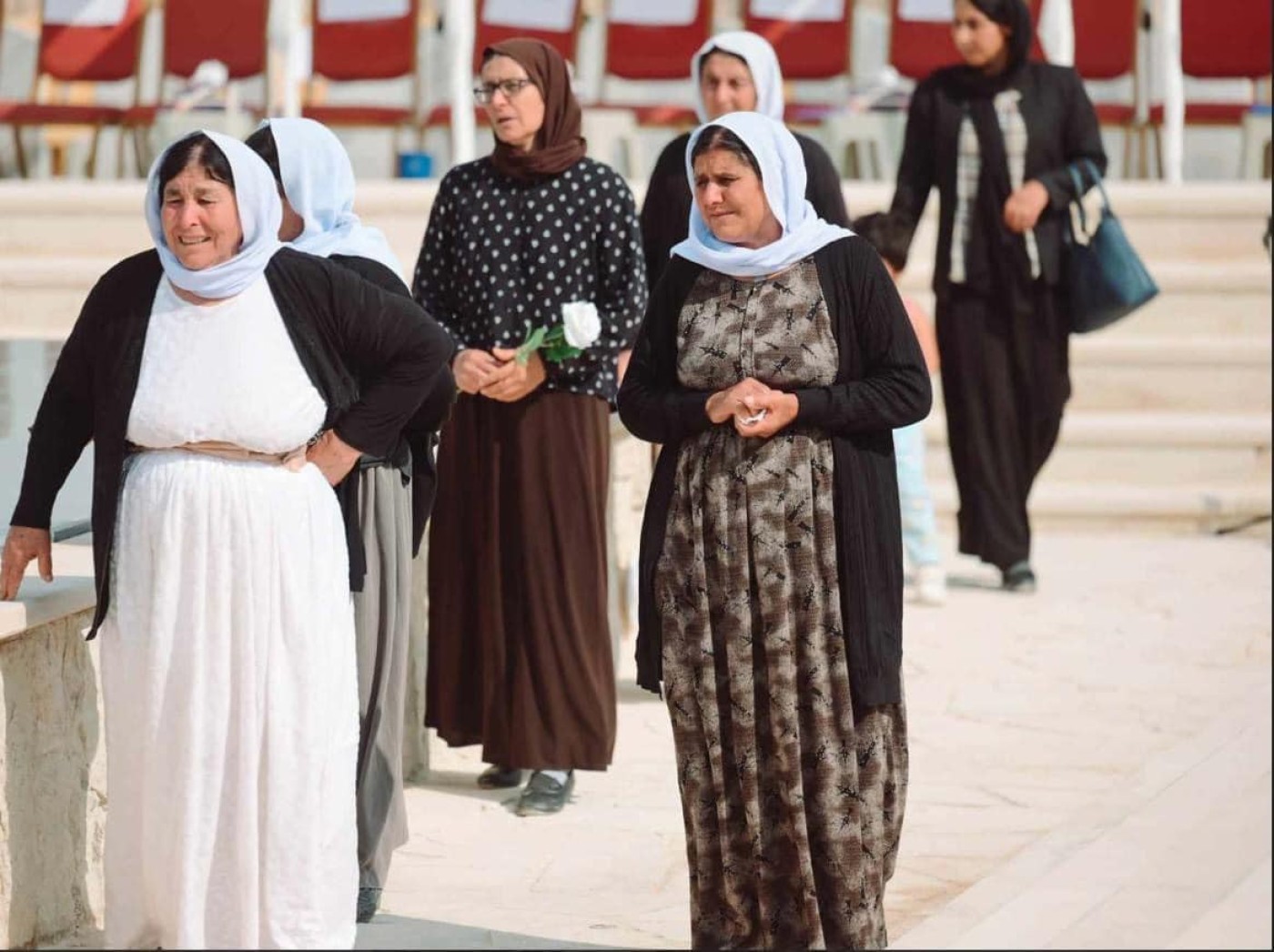
ISIS militants seized control of the Sinjar district, displacing an estimated 400,000, with tens of thousands besieged in Sinjar. ISIS perpetrated killings and mass abductions against Yazidi men and women. Additionally, around 100,000 Yazidis fled Iraq to seek refuge in Europe, the United States, Australia, and Canada.
The ancestral homeland of the Yazidis still bears the scars of destruction and ruin, despite eight years passing since liberation from ISIS.
This includes Khairo Darwish’s village of Siba Sheikh Khidr, south of Sinjar. Despite the passage of time, the remnants of destruction serve as stark reminders of the horrors endured by the community. Darwish emphasizes the necessity of rebuilding and restoring dignity. It is their collective desire to reclaim their ancestral land.

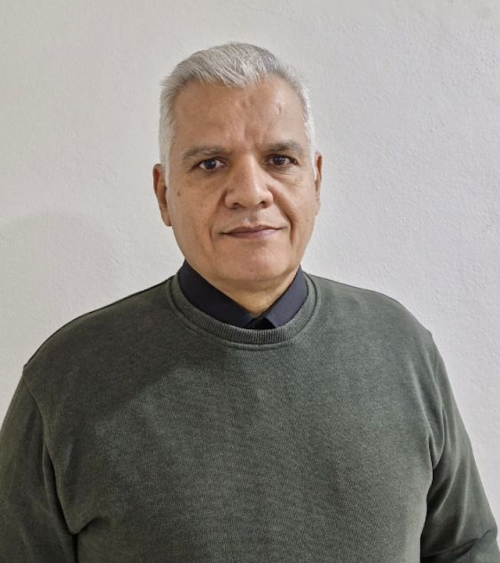
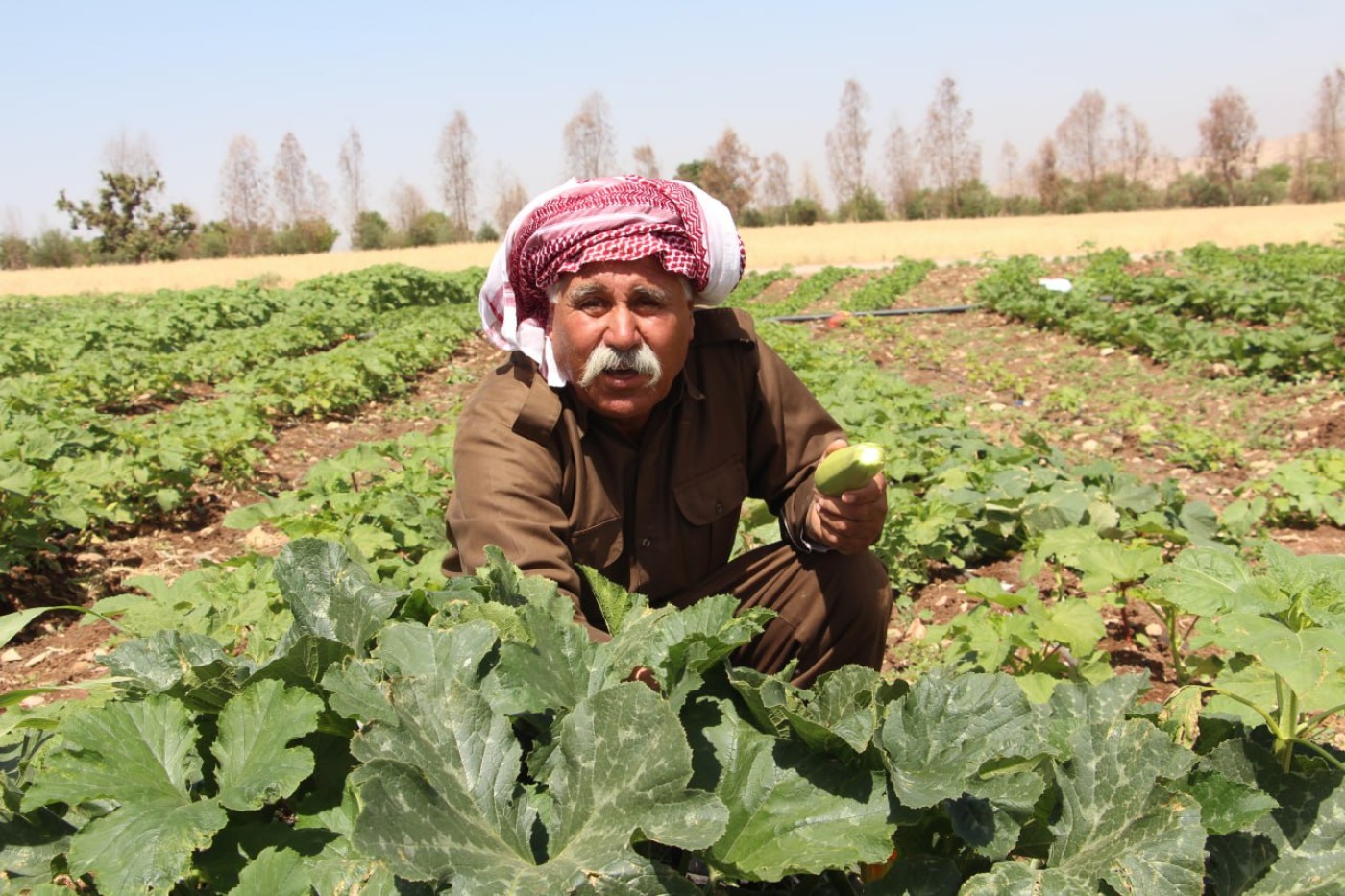
 Facebook
Facebook
 LinkedIn
LinkedIn
 Telegram
Telegram
 X
X
